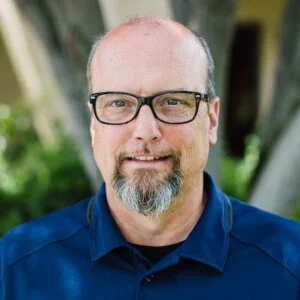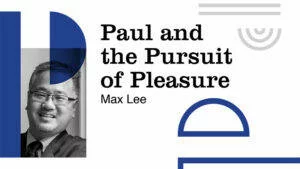 Thanks, Hans, for your challenging questions. With respect to Dr. Damadian and astronaut Colonel Jeffrey Williams, and their contribution to origins research from a creationist view, I believe that they have contributed to origins research. Before I get into that, however, my main task in the essay was to address the question, is it tenable to be a young earth creationist in the face of evidence against it? I mentioned these two scientists because of their outstanding achievements and public stand as creationists; both were confronted with strong evidence against biblical creation for most of their careers and yet they chose creationism as a worldview consistent with their science.
Thanks, Hans, for your challenging questions. With respect to Dr. Damadian and astronaut Colonel Jeffrey Williams, and their contribution to origins research from a creationist view, I believe that they have contributed to origins research. Before I get into that, however, my main task in the essay was to address the question, is it tenable to be a young earth creationist in the face of evidence against it? I mentioned these two scientists because of their outstanding achievements and public stand as creationists; both were confronted with strong evidence against biblical creation for most of their careers and yet they chose creationism as a worldview consistent with their science.
All Science is Creation Research
For instance, both scientists were in college, graduate school and post-graduate research labs in the second half of the last century, a period when education and science in the U.S. was dominated by an overarching commitment to both biological and cosmological evolution and philosophical naturalism. This deliberate stress on secular education in the United States was directly related to the “space race” as the Russians humiliated the U.S. space program with the first launch of a spacecraft, the “Sputnik” in 1957.I would contend that they did do creation research, as all scientists do when they study the physical world and universe, and it was the awe and wonder of design in nature that solidified their belief in creation. Curriculum committees were established (some as early as 1958) and textbooks were published with the express purpose of enhancing science education by elevating evolutionary doctrine and dismissing non-scientific views, including creationism.For instance, the BSCS textbooks were published by the Biological Sciences Curriculum Study committee popular throughout this period, and I have used them in the Christian biology classroom to teach students about evolution. See The BSCS Story: A History of the Biological Sciences Curriculum Study, ed. Laura Engleman (Colorado Springs: BSCS, 2001). For example, soon after his first academic appointment at SUNY (State University of New York), Dr. Damadian succumbed to the pressure to convert from a creation view of origins to evolutionary doctrine. This happened not long after his initial conversion to Christianity. After a few years of brilliant work in the lab, which provided the groundwork for the design of the MRI, he converted back to Christianity and creationism.Jeff Kinley with Raymond Damadian, Gifted Mind: The Dr. Raymond Damadian Story, Inventor of the MRI (Green Forest: Master Books, 2015).
Hans makes this observation: “ . . . but neither of them did research on origins questions. Damadian was a physician and Williams an engineer. Their respective areas of scientific training have no direct bearing on creationism.” I would contend that they did do creation research, as all scientists do when they study the physical world and universe, and it was the awe and wonder of design in nature that solidified their belief in creation. In their books Gifted MindIbid. (Damadian) and The Work of His HandsJeffrey Williams, The Work of His Hands: A View of God’s Creation from Space (St. Louis: Concordia Publishing House, 2010). (Williams), both scientists see God’s hand in creation through the window of science, even in the face of evidence against it. Furthermore, the creation of a young earth made sense to them in light of their commitment to Scripture. This, at the very least, has a bearing on creationism because it is inspiring to other creationists. I attended a conference at which colonel Williams discussed a biblical basis for his work as a scientist and astronaut; it was inspiring to me as a creationist.
Bias and the Findings of Science
With respect to your following question:
Why does nature not readily yield scientific findings consistent with your creationism? Many scientists in the seventeenth and eighteenth centuries wanted the earth to be young, they assumed that it was, yet their scientific findings gradually took them in a different direction.
Let me answer this by saying that “findings” in science are dependent on the observer’s bias. Also, it’s my experience that nature does yield findings consistent with creationism. Here is an example which shows, in contrast to your point about scientists moving away from creationism, that some indeed move toward creationism because of scientific discovery. Currently, many anniversary celebrations of the Apollo space missions are underway. Curiously, the BBC decided to play the voice recordings of the U.S. astronauts as they first viewed the moon and earth while in orbit. Charlie Duke (Apollo 16), a young astronaut was listening from earth to the astronauts of Apollo 8 as they gave a Christmas message to the American public via radio and television. Charlie would have also been exposed to the pro-evolution education of the 1950s and 60s and believed in an old earth, but upon hearing the Apollo 8 astronauts he converted to young earth creationism. As he recounts:
It floored me when I hear them reading from Genesis. To hear those words that I had heard in church many times, “in the beginning” and then they passed it on for the three of them to read. So I was very touched and very moved. It was a very emotional time for me, even though I was just a Sunday school Christian. I look back now and believe not in evolution but I believe in a creation by God of everything, the heaven, the stars, which he calls each by name, life on earth and I believe that process is described in Genesis. So I have come from an old earth, ancient of days, to a young earth. And I have a lot of arguments with people about that, and I said look it’s a matter of faith.
I used to believe in accidental life and here we are, four billion years later or whatever, but I have changed my mind.The original BBC program was produced by Sophia Smith Galer, available here: https://www.bbc.co.uk/programmes/p071nkpb (accessed on June 27, 2019).
In my own work, I have been able to use a creation model to show that many microbes on earth were designed to recycle nutrients on earth to support life.Joseph Francis, “The Matrix,” Answers Magazine (2008), 42; Joseph Francis, “The Organosubstrate of Life: A Creationist Perspective of Microbes and Viruses,” in Proceedings of the Fifth International Conference on Creationism, ed. L. R. Ivey, vol. 5 (Pittsburgh: Creation Science Fellowship, 2003), 433-444. We think of microbes as mostly disease causing organisms, and many possess designs that appear to cause disease. However, the scriptural principle that all things were created good in a world without disease and death, led me to propose that a majority of micro-organisms actually support life on earth. This is a scientific theory, which flows from young earth creationism but typically not from other creationism views.In old earth and evolutionary creationism, death is part of God’s good creative process because his creation activity involves death and selection of evolved survivors before the fall of Adam. In the case of young age creationism, organismal death and disease only occur after creation of living organisms and the fall of Adam.
Consensus and Corroboration
Question from Hans:
God authored both nature and holy writ, so why did science not corroborate Scripture? And why does this discrepancy continue today? It would be helpful to give an explanatory account of this discrepancy, especially in light of your statement: “the scientific data which appears to counter the young age creation position should be considered more tenuous or unsettled than overwhelming.”
I would again appeal to bias as the reason why it appears that science does not corroborate Scripture. I think a strong case can be made that those who hold to a pro-evolutionary anti-creation bias are those who also control what is published as acceptable science in journals and textbooks. This does not excuse creationists from doing good science work, but it can give the misleading impression that science does not corroborate Scripture.Certainly, there are some mysteries we don’t understand as stated in scripture and our perspective may be flawed as we look at God’s creation (see Col. 2:3). For instance, if we measure the age of the universe using the speed of light from stars, it appears old but distance can also be measured by starlight and these measurements show that the universe is expansive and vast. It speaks of a powerful God who wants to show us his grandeur and I think we miss this when we may focus narrowly on arguments like the age of the earth. Interestingly, in the writings of Darwin, Hawking, and other great scientists, even though they turned to atheism, they used phrases to explain their view of evolution like “there is grandeur in this view” (Darwin) and “we would know the mind of God” (Hawking). This acknowledgement of power by even those who reject him is consistent with the doctrine of general revelation in Romans 1.
I also find it interesting that when evolutionary scientists defend the evidence for evolution they will often appeal to the consensus among scientists as a more reliable proof than the data itself. I think this is an admission that science is a discipline which by its nature is tenuous, i.e., theories come and go and that some of the data in favor of evolution and an old earth are weak.
I was exposed to this kind of thinking in a dramatic way. Michael Shermer is an outspoken atheist/agnostic skeptic who writes a monthly column for Scientific American. I heard Shermer speak at a conference called “Design and it Critics” organized by Agnus Menuge and others in the intelligent design movement (ID) in June, 2000.The conference was held at Concordia College in Wisconsin (see Thomas Woodward, Darwin Strikes Back: Defending the Science of Intelligent Design [Grand Rapids: Baker, 2006], 48). I remember Shermer’s talk because he was a lucid and effective speaker and it was exciting because he was an outspoken anti-design critic and this captured our attention. In his plenary, talk he started out by saying he “knew what this conference was all about” and spoke in a very direct, almost shouting manner. In reproachful tone, he said the conference was about Christianity, not science. He then went on to infer that ID fails as a science because it does not have much scientific data to support it and because few scientists accept it as science. He inferred that evolutionary biology was superior because of the number of scientists who believed it and because of “consilience of induction” (the notion that a scientific theory can be trusted or proven when there are many lines of independent evidence in its favor). So again, I would stress that any one line of evidence for a theory can be weak, thus “consensus” is what largely determines what is acceptable science today.
Dark Mater and the Big Bang
Let me give an example where I think the data in support of an old earth are tenuous. In my original response, I inferred that evidence< in favor of an old universe is suspect because we do not even know what makes up greater than 95% of the universe. I was referring to dark energy and dark matter. Dark matter is required to explain why galaxies exist; it appears to act like a form of matter that we cannot see, which provides gravitational pull such that galaxies do not fly apart. It also helps explain why the cosmic microwave background radiation—which is radiation left over from the big bang—is not totally uniform. In addition, many cosmologists believe that the universe is still in an inflation (expansion) mode; and yet, how does one explain matter moving apart when there is an attraction force between all the matter in the universe? Dark energy is now Therefore, it seems to me that the make-up of a significant portion of the structure of the universe resulting from the big bang is tenuous at best, and it opens the door to alternative theories about the origin and age of the universe.proposed as the explanation for the universe expansion as it appears to be an energy source which drives inflation.
However, recent measurements of the universe has caused some cosmologists to consider that dark matter might be some kind of fudge factor, and its ubiquitous presence might even change the standard model of physics! In an online paper, “New Map of Dark Matter Puts the Big Bang Theory on Trial,”Adam Hadhazy, “New Map of Dark Matter Puts the Big Bang Theory on Trial (Kavli Roundtable),” in Space.com, available at: https://www.space.com/38640-dark-matter-map-big-bang-kavli.html (accessed June 27, 2019). three cosmologists from Carnegie Mellon, Stanford, and University of Cambridge, respectively, discuss a new map of dark matter. Dr. Dodelson (Carnegie Mellon) notes that:
These data, along with precise measurements taken by other projects, might start showing small hints of disagreement, or tension, as we call it, with our current understanding of how the universe began and is now actually expanding at increasing speeds. As Risa just said, we’re not sure our current way of thinking is correct because it essentially requires us to make stuff up, namely dark matter and dark energy. It could be that we really are just a month away from a scientific revolution that will upend our whole understanding about cosmology and does not require these things.
This is not the only recent publication showing that dark energy and matter have thrown a wrench into standard cosmology. Dr. Abraham Loeb of the Harvard-Smithsonian Center for Astrophysics suggests that certain theories derived from big bang cosmology, like inflation, are not science because we need to use dark energy to explain them:
We are therefore forced to explain [the universe and] its special properties, such as dark energy, with the topsy-turvy logic of the ‘anthropic principle’: that we live in the domain we live in because, if we didn’t, the physics would not have given rise to stars and galaxies, and physicists to describe them. “This gives inflation no explanatory power,” says Loeb. “It’s an infinitely flexible framework capable of fitting any data. To my mind that means it is not science.”Marcus Chown, “What if the Big Bang was not the Beginning?” Science Focus 334 (April 29, 2019), 70-77. Also available here: https://www.sciencefocus.com/space/what-if-the-big-bang-was-not-the-beginning/ (accessed on June 27, 2019).
To be fair here, it should be noted that there are cosmologists who disagree with Loeb. And full disclosure: I am not a physicist nor a cosmologist and it’s easy to get caught up in quote mining. However, there appears to be a growing consensus that the existence of dark energy and dark matter may change our theories about the beginning of the universe. Therefore, it seems to me that the make-up of a significant portion of the structure of the universe resulting from the big bang is tenuous at best, and it opens the door to alternative theories about the origin and age of the universe.







Comments
Be the first one to make a comment!